Listening to the diet culture message about carbs? Here’s why you shouldn’t
March 15th, 2019 by Sara Upson
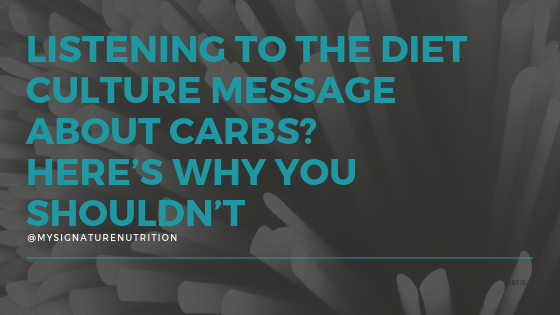
I’m not sure there’s a macronutrient with a worse reputation than carbs. Diet culture has labeled carbs as the root of all evil, the epitome of all illness, the thing that is going to make or break your health. Heck, even your life! The fear mongering around carbs is out of control! It’s unnecessary, and it couldn’t be further from the truth.
Carbs are the number one restricted food right now (they have been for awhile) and keto is the most searched diet on google. Remember when it was paleo, whole 30, south beach, or atkins? Yes, all different versions of low carb diets that have just shifted and changed throughout the years.
Carbohydrates haven’t always been so restricted. Remember the 80s and 90s? When low fat was all the rage? Diet culture basically just switched one restricted macro for another. We don’t need to do that again. Instead, we need to liberate carbs! And really liberate all foods!
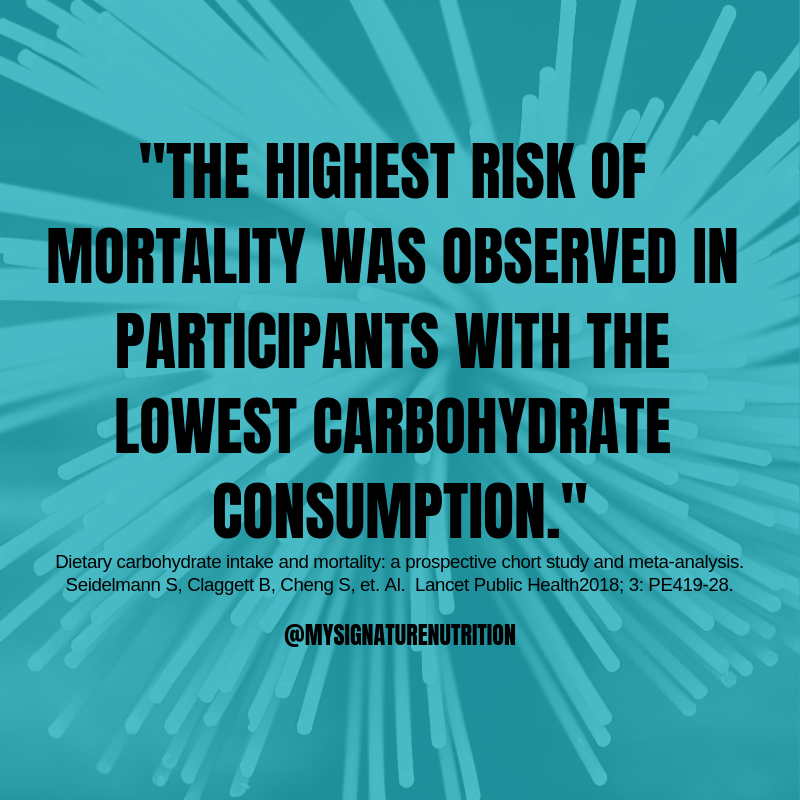
Carbohydrates are an important form of energy for your body. Your body needs carbohydrates to thrive and your body isn’t nearly as judgmental as your brain or diet culture.
Carbs actually correlate with increased life span (lower mortality rates). To be clear, carbs have a u-shaped association with mortality where both low carbohydrate (less than 40% carbohydrate intake) and high carbohydrate (greater than 60% carbohydrate intake) correlate with increased risk of death. In one large, epidemiological cohort study (Seidelmann, 2018), the “highest risk of mortality was observed in participants with the lowest carbohydrate consumption.” This particular study estimated that individuals who consumed a low carb diet (less than 30% intake) would have a projected life expectancy 4 years less than those who ate moderate carb (50-55% intake) and 3 years less than those who ate high carb. (greater than 65% intake).
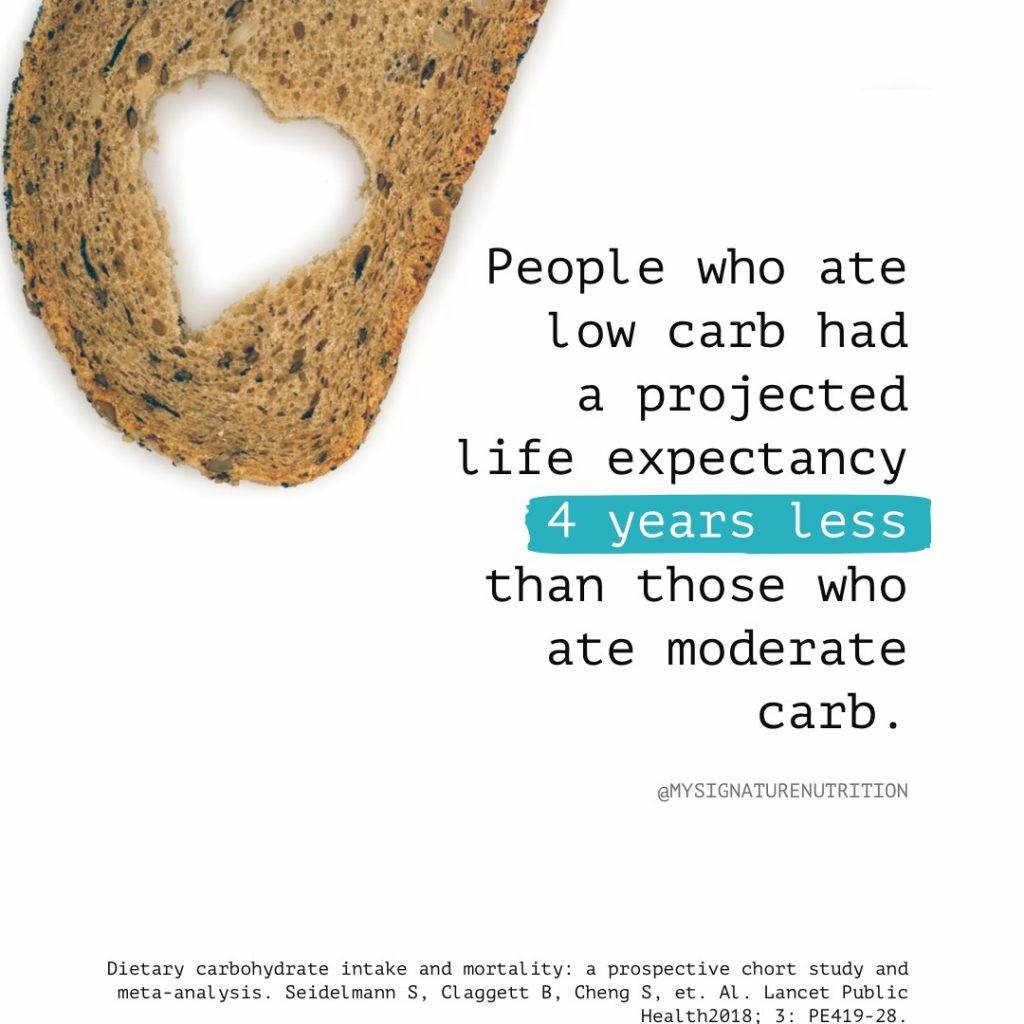
50-55% carbohydrate intake also correlated with the lowest mortality risk in another large, epidemiological cohort study (Dehghan, 2017) of individuals in 18 countries that were followed for five to nine years. Sadly though most headlines attempting to communicate the results of this study “spun” the news to say, “high carb diet correlates with higher mortality risk.” This actually is true, however high carb was referencing intake greater than 60-70% carb. Not the amount typically consumed in the US- but levels of carb intake primarily found in third world countries. The results of these two large cohort studies were that regular old moderate carb intake (50-55%) correlated with lowest mortality risk.
Carbs also improve quality of life. They provide energy for your brain and muscles. When your body isn’t getting enough of the fuel it prefers then you’re more likely to experience headaches, dizziness, muscle weakness, difficulty concentrating, decreased emotion regulation (more anxiety, irritability, and mood swings), nausea, constipation, bad breath, difficult sleeping, vitamin and mineral deficiencies and be at increased risk for chronic disease! All of which decrease overall quality of life! Sometimes I share this list with clients in my office and they often respond, “Oh, no wonder why I was feeling so bad.”
Carbs are an important part of living. Almost every culture in the world includes carbs as their primary energy source (rice, beans, pasta, grains, etc). That’s not random- it’s because it’s an important part of living!
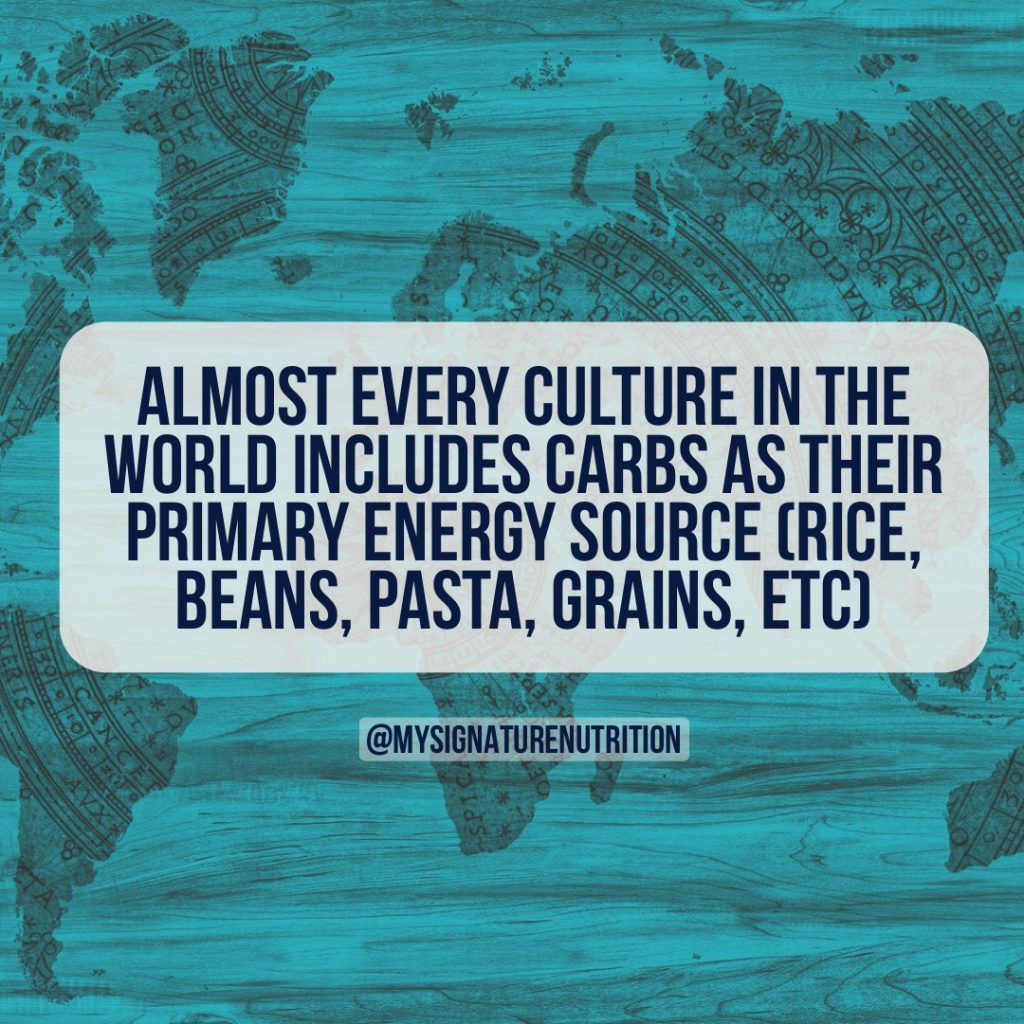
Carbs also make it easier to enjoy relationships. It’s hard to fully participate in life and to connect with others when you’re feeling so drained on energy. And, it’s even harder when you can’t go places and eat the food served because it contains carbs (or too many carbs). You end up missing out on life! AS Nancy Clark, RD says, “No pasta, no potato, no birthday cake, no fun.” (She mentions this in an article for Team USA writing about carbs and athletic performance that you can read here.)
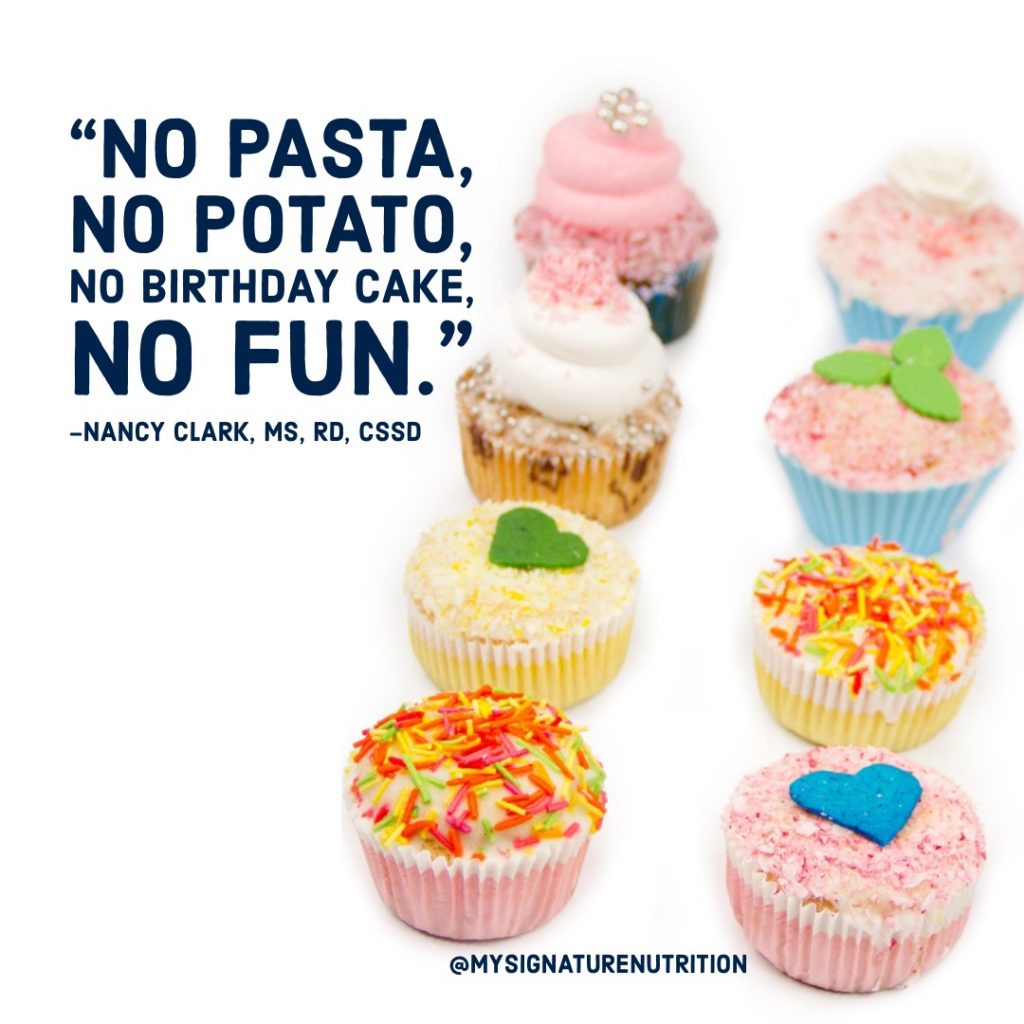
It’s just our culture that says carbs are bad and diet culture is a liar! Diet culture wants to keep you trapped, living in fear, not fully engaging in life. And sadly, it does this with the promise of freedom, connection and living your “best life.” Diet culture is a liar. Diet culture keeps you stuck. Diet culture hates carbs. I hate diet culture. But I love carbs and I want to help you have more freedom and enjoyment with carbs too. So next time you’re feeling stuck with carbs, say no to diet culture, and keep these benefits of carbs in mind: (and fyi this is the short list of benefits)
Provide energy: Carbs are the preferred source of energy for your brain, the cells of your central nervous system, and skeletal muscles.
Spare protein: When you eat enough carbs, your body will use the protein that you consume to build and repair muscle tissue rather than for energy. In this way, carbs spare protein for muscle building and repair.
Prevent muscle breakdown for energy use. If you don’t eat enough carbs, you body will break down muscle tissue to use for energy.
Regulate blood glucose levels. Carbohydrates are stored in the liver (and skeletel muscles) in the form of glycogen. Between meals or snacks when blood glucose levels start to drop your body will release the stored form of glucose to help maintain blood glucose levels- which in turn maintains your energy, focus, concentration and mood.
Serve as major source of energy during exercise: Skeletal muscle stores glucose in the form of glycogen to be used for energy. Muscle glycogen is the primary source of energy during exercise. Your ability to exercise and feel good doing so directly relates to your muscle glycogen stores.
Provide fiber vitamins and minerals. Many foods that contain carb are also a good source of fiber, vitamins, and minerals. (Examples: fruit, vegetables, grains, dairy.)
Bind cholesterol in GI tract: The fiber associated with carbohydrates (specifically soluble fiber) binds cholesterol in the GI tract thereby helping to reduce the amount of cholesterol absorbed.
Aid in preventing constipation. The fiber in carbohydrates (both soluble and insoluble) help add bulk to the store and increase transit time which can help reduce constipation. (*If you’re malnourished/ not eating enough food adding fiber can make constipation worse- not better!)
Improve Sports performance. Carbohydrates are correlated with improved performance in sport, specifically related to intensity and endurance. Even if you don’t participate in sports, this is important because exercise won’t feel good if your body doesn’t have the fuel it needs! (And then you may think you hate exercise when really you hate how exercise feels when you’re not eating enough.)
Mood. Carbohydrates are associated with a release of serotonin which can help increase your emotional energy, improve your mood and may help you sleep better.
Click here to download this list as a pdf.So Carbe Diem! Liberate Carbs!
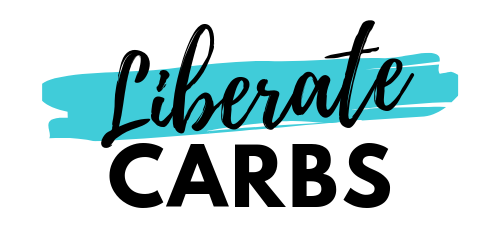
References:
Dehghan M, Mente A, Zhang X, et. Al. Associations of fats and carbohydrate intake with cardiovascular disease and mortality in 18 countries from five continents (PURE): a prospective cohort study. Lancet2017; 390: 2050-62.
Seidelmann S, Claggett B, Cheng S, et. Al. Dietary carbohydrate intake and mortality: a prospective chort study and meta-analysis. Lancet Public Health2018; 3: PE419-28.






Leave a Reply